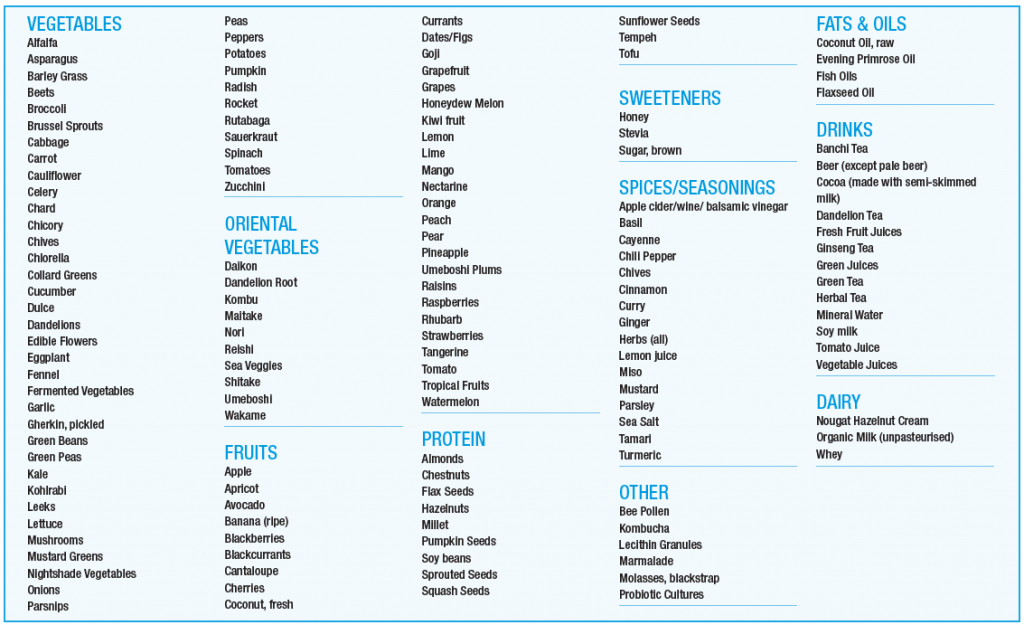Taken from ‘Digestive Solutions- 101 proven methods to solve your tummy problems naturally’ By Michele Wolff

I’d advise you not to get too obsessed with taking your pH and keep your focus on what is right with you whilst improving your health. Once or twice a week is a good way to keep a check of what is happening on the inside. Each 0.1 increase in your pH means a 10 fold increase in tissue oxygen which is a good thing. So if you have an acidic pH of 5 and shift to 7 you’d have a 150 fold increase in tissue oxygen and your digestion will be operating a whole lot better. An overly acidic pH (and overly alkaline) is a sign of low minerals. Minerals are the most essential substances for the body. They are like the foundations of a house and everything builds
on them for example, vitamins cannot absorb properly without minerals. There’s no point taking loads of vitamin supplements if you test acid as your absorption of them will be poor.
Minerals will help:
Treat an existing illness.
Prevent an illness from becoming worse.
Prevent vague symptoms from developing into a full blown disease.
Maintain good health and prevent disease.
Minerals are abundant in vegetables (in particular, green leafy vegetables and sea vegetables like seaweed) and vegetable juices.
Many digestive problems come from acidity and poor amounts of minerals in the diet, which leads to poor absorption and elimination and over time makes things worse.
Role of minerals
The role of minerals is vitally important for health and a lack of them contributes to every disease. Pollution, poor soil quality, stress and acidic diets are some reasons why so many people have a lack of minerals.
They help build teeth, bones, connective tissue and cell membranes.
All bodily processes depend on the action minerals.
They help pH as enzymes transform minerals into an alkalising detoxifying agent which combines with acid waste and toxic settlements within the body, neutralising them and preparing them for elimination.
Calcium is the most abundant mineral in the body (makes up 1.5-2.2kg of your body weight) and the efficiency of each mineral is enhanced by balanced amounts of the others. Interestingly, a shortage of just one mineral can disrupt bodily activity rendering other nutrients useless. You lose a massive amount of minerals through your urine, bile (from the liver/gall bladder), sweat and faeces (poo) as a result of normal daily processes in the body. The daily losses usually amount to more than 700mg which must be replaced on a daily basis and what makes you lose more minerals? Sugar, caffeine, alcohol, cigarettes and junk food!
Be careful with calcium supplements; you really need a hair analysis to determine the right calcium for you. Some supplements can lower your stomach acid which isn’t good and others can displace calcium into your arteries however, if you need them and take the correct supplement for you, you’ll get fantastic results.
Taken from ‘Digestive Solutions- 101 proven methods to solve your tummy problems naturally’ By Michele Wolff





